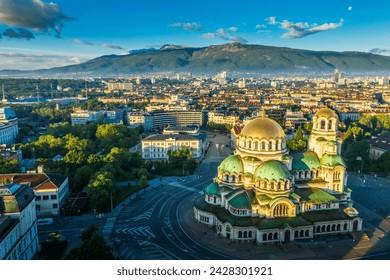Bulgaria and North Macedonia have reached a landmark agreement to construct a cross-border tunnel aimed at enhancing connectivity and boosting regional trade. The deal, announced this week, marks a significant step forward in bilateral cooperation and infrastructure development between the two neighboring Balkan countries. The tunnel will serve as a critical link within the broader framework of Southeast Europe’s transport network, facilitating smoother rail transit and fostering economic integration across the region.
Bulgaria and North Macedonia Commit to Strategic Cross-Border Rail Tunnel Enhancing Regional Connectivity
The joint initiative between Bulgaria and North Macedonia marks a significant milestone in Balkan infrastructure development, aiming to bolster economic ties and ease passenger and freight transit between the two nations. This ambitious project centers around the construction of a state-of-the-art rail tunnel piercing the rugged terrain that has historically impeded direct connectivity. Officials highlight that the tunnel will dramatically reduce travel times, facilitate smoother logistic operations, and enhance tourism opportunities by creating a seamless route connecting key urban centers.
Key benefits of the rail tunnel include:
- Improved cross-border freight efficiency
- Enhanced passenger travel experience and accessibility
- Strengthening regional cooperation and economic integration
- Environmental benefits through reduced road traffic emissions
| Feature | Details |
|---|---|
| Projected Length | 12 km |
| Expected Completion | 2028 |
| Investment | ‚ā¨300 million |
| Capacity | Freight and passenger services |
Engineering Challenges and Environmental Considerations in the Proposed Tunnel Project
The ambitious tunnel project connecting Bulgaria and North Macedonia confronts formidable engineering challenges due to the complex geology of the region. The proposed route traverses mountainous terrain marked by unstable rock formations, deep fault lines, and variable soil conditions. Engineers will need to employ advanced tunneling techniques such as tunnel boring machines (TBMs) equipped with adaptive cutting heads to mitigate risks of cave-ins and water ingress. Additionally, seismic activity in the Balkans demands robust design strategies that ensure structural integrity under potential earthquake scenarios.
Environmental stewardship remains a priority throughout the planning and construction phases. The tunnel passes through several protected natural reserves, necessitating a rigorous environmental impact assessment that addresses biodiversity conservation and water resource protection. Key considerations include:
- Minimizing disruption to habitats of endangered species by timing construction seasons carefully.
- Managing groundwater flow to prevent contamination or depletion affecting nearby communities.
- Implementing waste disposal protocols for excavated materials to reduce landfill impact.
| Challenge | Proposed Solution | |
|---|---|---|
| Unstable Rock Formations | Adaptive TBM with real-time monitoring | |
| Seismic Activity | Flexible tunnel linings and shock absorption systems | |
| Protected Ecosystems | Seasonal work restrictions and wildlife corridors | |
| Groundwater Management | Groundwater Management | Advanced drainage systems and continuous water quality monitoring |
| Focus Area | Recommended Action | Expected Outcome |
|---|---|---|
| Governance | Create joint project steering committee | Efficient decision-making process |
| Funding | Secure trilateral financing agreements | Stable and predictable budget |
| Technical Coordination | Standardize engineering specifications | Seamless cross-border infrastructure integration |
| Community Engagement | Conduct local consultations and feedback sessions | Improved social license to operate |
In Retrospect
The agreement between Bulgaria and North Macedonia to construct a cross-border railway tunnel marks a significant step forward in regional connectivity and cooperation. Once completed, the project is expected to enhance trade, tourism, and economic integration between the two countries, while strengthening links within the broader Balkan transport network. As both nations move ahead with detailed planning and implementation, the initiative underscores the growing commitment in Southeast Europe to overcome historical divisions through infrastructure development and international collaboration. Further updates will be closely monitored as the tunnel project progresses.
















